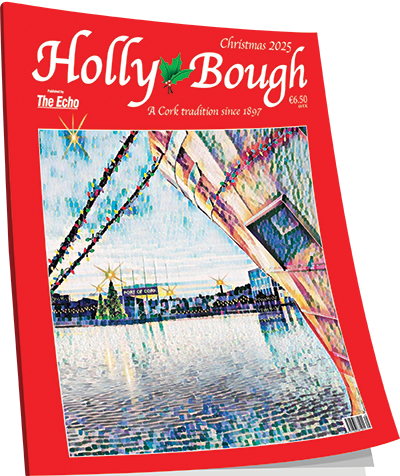Cork Cycling Campaign chairman says we need to embrace the 'wonder drug of cycling to work'
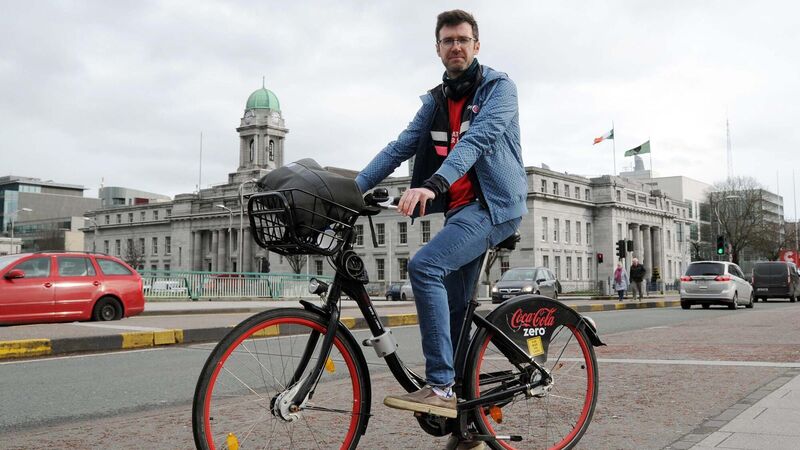
Speaking before a joint Oireachtas Committee on Urban Regeneration, the chairperson of the Cork Cycling Campaign, Conn Donovan, highlighted the need for change. Picture Denis Minihane.
“If a drug was developed that lowered the risk of developing heart disease and cancer by 40%, governments across the world would rush to ensure their citizens had access to it.
“This drug already exists, albeit not in pharmaceutical form. It is called cycling to work.”
Speaking before a joint Oireachtas Committee on Urban Regeneration, the chairperson of the Cork Cycling Campaign, Conn Donovan, highlighted the need for change.
“If a technology was developed that lowered the average person’s transport carbon footprint by 67%, it would be seen as a game-changer,” he explained.
“This technology already exists.
“Improved public health and lower transport carbon emissions are just two compelling reasons it makes sense for central and local government to promote cycling as a form of everyday transport.”
There are several pervasive narratives in Ireland that suggest cycling is not a realistic transport option for people across the country but, upon further scrutiny these excuses, explained Mr Donovan, hold no water.
“We often hear that our climate is too wet, that our cities sprawl too far or that cycling is just not part of our culture,” he said.
“The reality is that Dublin has comparable weather to Copenhagen, two out of three primary school children live within two kilometres of their school and 84% of residents in Dublin support building more physically-separated, on-road cycle tracks.
“There are two main reasons more people tend not to cycle in Ireland,” he added.
Mr Donovan explained that the government can address these issues using both carrots and sticks.
“The carrots include the provision of safe cycling routes, high-quality bike parking and compact neighbourhoods,” he said.
“While the sticks include transport plans that limit unfettered vehicular access in urban areas, increase parking charges and reallocate road space.
The government, Mr Donovan said, must prioritise transport-oriented development (TOD), which is a type of urban development that maximises the amount of residential, business and leisure space within walking distance of public transport.
“TOD helps to create vibrant, liveable and sustainable communities,” he said.
“Government should prioritise TOD ahead of low-density greenfield development insofar as possible in the coming years.
“We must, however, appreciate what TOD would mean for cycling in Ireland,” he added.
“It would lead to the development of small urban areas where it may be safer and more attractive to cycle.
“These would be in or near larger urban areas where it is often not safe to cycle and more attractive to drive, and therefore the adoption of TOD development must not be seen as a silver bullet for the promotion of active travel, but rather one piece of the puzzle in helping to achieve modal shifts.”
Mr Donovan highlighted the Merwede district in the city of Utrecht in the Netherlands as a good example of what TOD can look like.
“This new neighbourhood will eventually be home to 20,000 people, but the entire new road network for this development will consist of just 60m of roads, or four short dead ends,” he explained.
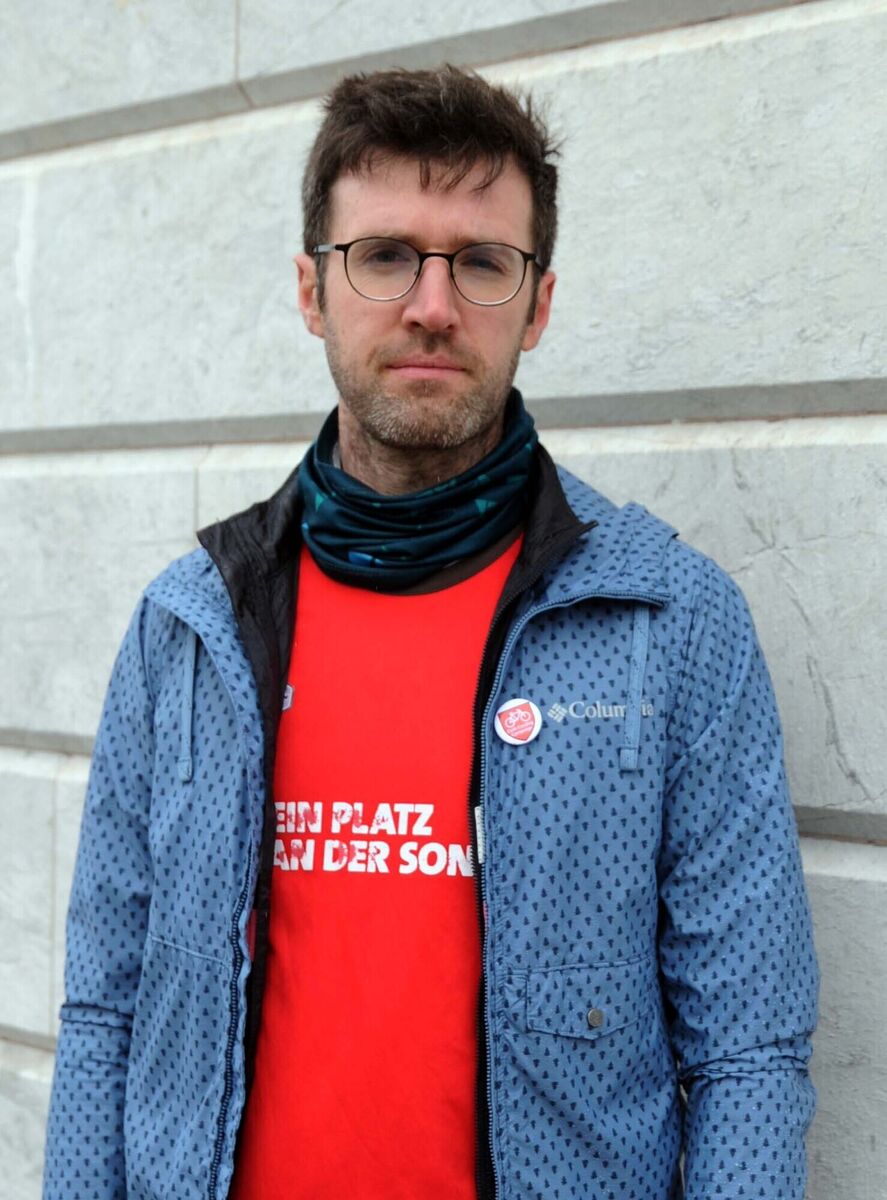
“Parking will be limited to one car for every three households.
“Small electric vehicles will carry out waste management and deliveries, and urban spaces and the public realm will be quiet and car-free, with an emphasis on biodiversity and place-making.
“Perhaps Merwede's greatest asset is that it will be in the city of Utrecht, where cycling policies and investment over several decades have made the bicycle a popular transport option,” he said.
“The Merwede piece of the puzzle therefore fits in nicely with the existing picture in that city.”
Mr Donovan warned that, in Ireland, we must be careful to ensure that TOD is not used as a “Trojan horse” to justify building more roads, thus ensuring Irish society’s increased dependency on cars.
“Last year, Cork City Council approved plans to build a new dual carriageway in the docklands.
“In its submission to the public consultation regarding this proposed dual carriageway, Cork Chamber of Commerce noted that 'a new high-capacity, multi-lane provision for cars is not in keeping with the national and regional commitment to high density, low car and compact growth'."
Speaking at the Oireachtas, Mr Donovan highlighted the low numbers of teenage girls who cycle to school, and the need to ensure streets are safe for children of all ages.
“Last month, funding was provided to 26 towns to deliver town centre first plans,” he explained.
“In 12 of these 26 towns, not one girl aged between 13 and 18 cycled to school, according to data from the Central Statistics Office.
“These towns are not outliers,” said Mr Donovan.
“In 2016, no teenage girls cycled to school in more than 120 towns with populations greater than 1,500 people.
“In 1986, more than 19,000 girls cycled to secondary school, but by 2016 this number had fallen to 700.”
Mr Donovan recalled recent discussions by the Oireachtas Committee on ways to incentivise urban living and bring derelict properties back to life.
“The town centres living initiatives synthesis report noted that the public realm in Ireland is dominated by cars and there is a perception that streets are not safe for children,” he said.
“When we are designing the master plan for a large brownfield site or adopting policies to bring existing buildings back into use, we must consider whether it will be a healthy place to live.
“We know that when urban areas are dominated by cars, communities suffer,” he added.
“Less social interaction, increased risk of death and disease, sleep disturbance and developmental delays in children have all been associated with living near busy roads.
“Urban areas in Ireland need to be healthy and attractive places to live.
“To ensure this, significant modal shifts away from private cars and in favour of walking, cycling, light mobility and public transport must be realised.”
As well as a modal shift in practice and thinking, Mr Donovan highlighted the need for cycling commissioners in regional cities across Ireland.
He highlighted similar examples in the UK, where senior cycling commissioners market cycling campaigns in the community and via the media.
“Perhaps one of the reasons we have stronger and stronger bike advocacy groups around the country is that there is probably a lack of leadership, and those groups are forming and going into an empty vacuum to promote projects,” said Mr Donovan.
“Cycling commissioners for each of our regional cities who can sell the message of the schemes would be very important.”

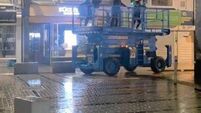

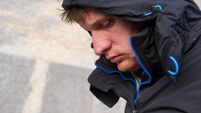
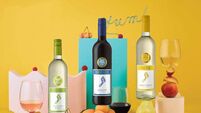
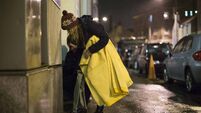

 App?
App?



